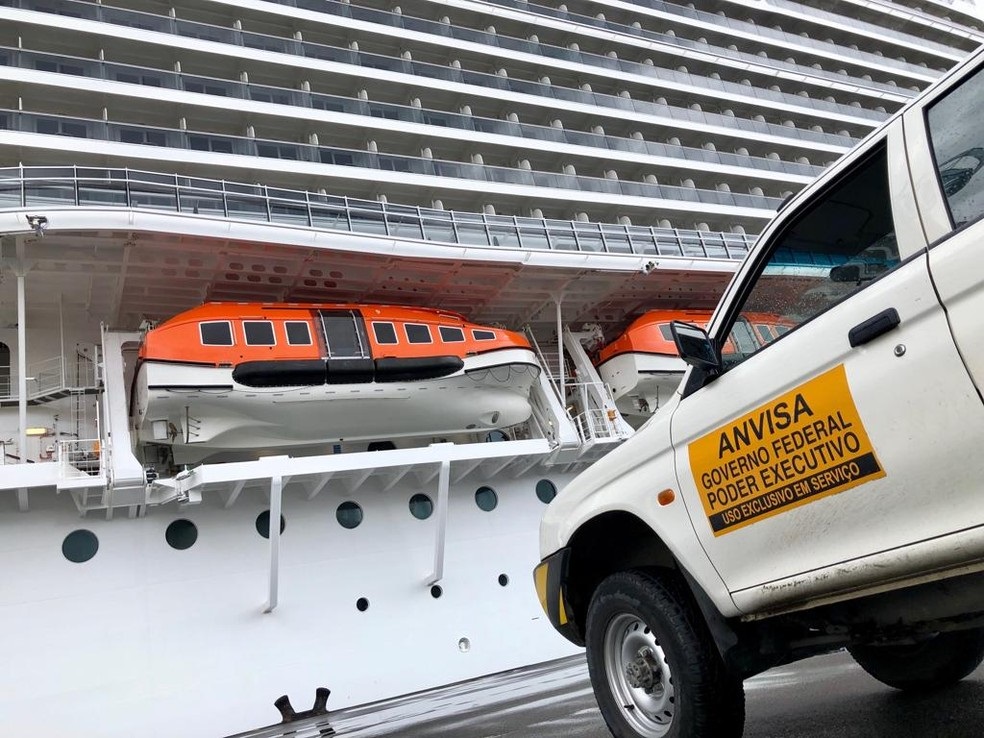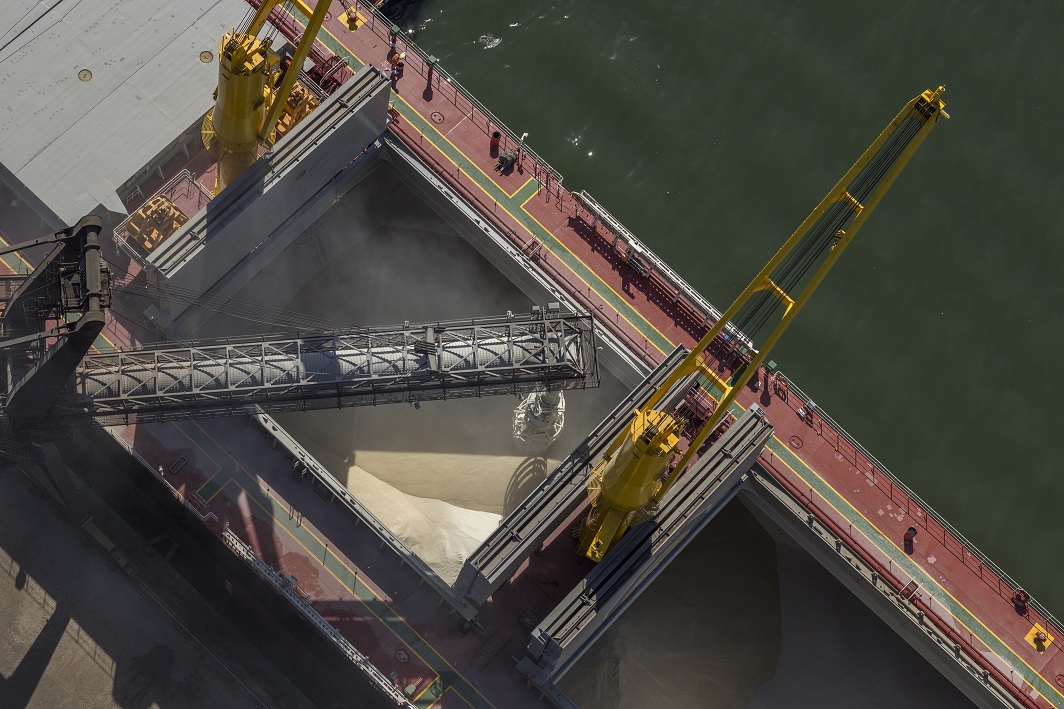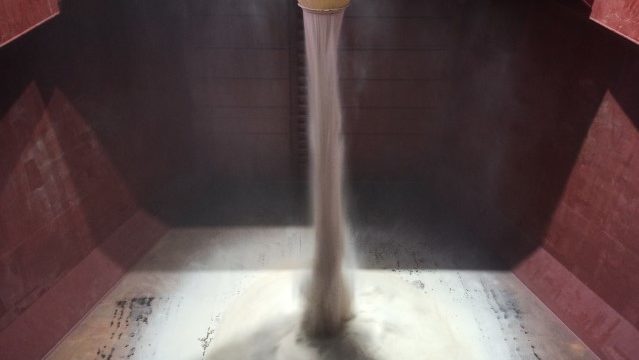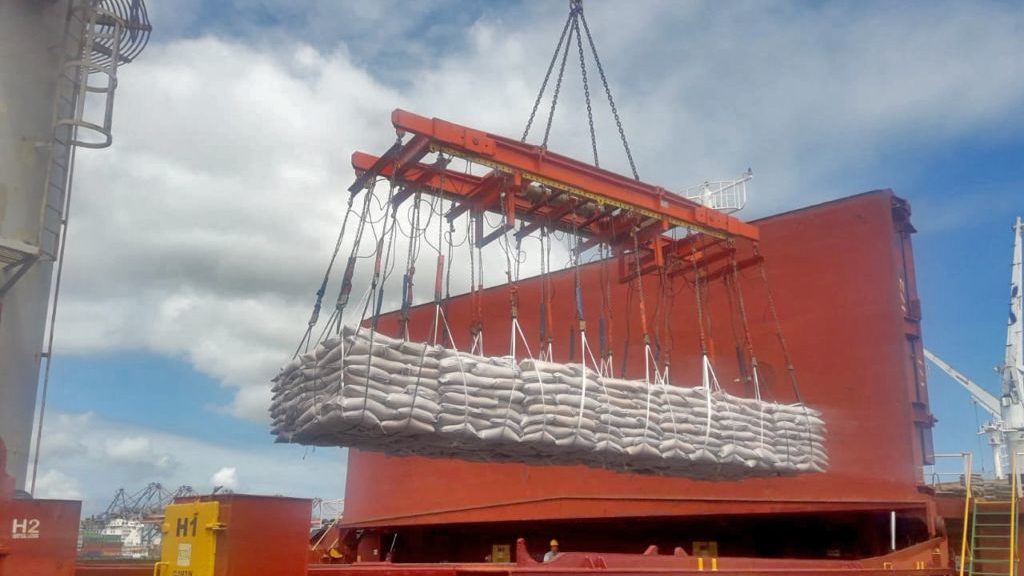
Port health controls in Brazil
read more

While the early history of sugar production in Brazil is inextricably associated with slavery and intensive labour, the industry was modernised from the turn of the century, making the country the world’s top producer and exporter of this millennial commodity. The country is the second ethanol producer behind the United States and has the largest automotive fleet running on biofuels.
Last year, Brazil produced over 41 million metric tons of sugar, mostly exported, yielding an all-time export record. Despite an estimated reduction for 2020/21, sugar production and exports are expected to continue at very high levels for years.
Considering the high volumes of sugar shipments departing from Brazil each year, the incidence of significant cargo damage or shortage claims is relatively low. However, because most bulk terminals are only designed to load cargo, removing large amounts of sugar spoiled during loading can be challenging and expensive.
To help our clients and associates doing business in the country better understand why the traditional commodity stands out as one of the vital agriproducts that help boost the Brazilian economy – and keep ports busy –, we have condensed this guide with comprehensive information about the national sugar industry, the local practices and regulations.

Firstly, we briefly walk through the history of sugarcane in Brazil, its production, export, and port handling volumes, along with statistical information. We then summarise the applicable national and international grading standards and legal framework for quantifying, loading, and carrying sugar cargoes and allocating liabilities among the various stakeholders.
Following the guidelines of international authorities and leading P&I clubs, we have put together some practical advice on the main risks of loading sugar in Brazil and best practices for carrying the sweet commodity, preventing, or at least minimising, cargo losses.
We hope this guide will be a valuable source of reference and practical information, and we welcome your comments and suggestions for corrections and improvements in a future edition.

Please read our disclaimer.
Related topics:
Rua Barão de Cotegipe, 443 - Sala 610 - 96200-290 - Rio Grande/RS - Brazil
Telephone +55 53 3233 1500
proinde.riogrande@proinde.com.br
Rua Itororó, 3 - 3rd floor
11010-071 - Santos, SP - Brazil
Telephone +55 13 4009 9550
proinde@proinde.com.br
Av. Rio Branco, 45 - sala 2402
20090-003 - Rio de Janeiro, RJ - Brazil
Telephone +55 21 2253 6145
proinde.rio@proinde.com.br
Rua Professor Elpidio Pimentel, 320 sala 401 - 29065-060 – Vitoria, ES – Brazil
Telephone: +55 27 3337 1178
proinde.vitoria@proinde.com.br
Rua Miguel Calmon, 19 - sala 702 - 40015-010 – Salvador, BA – Brazil
Telephone: +55 71 3242 3384
proinde.salvador@proinde.com.br
Av. Visconde de Jequitinhonha, 209 - sala 402 - 51021-190 - Recife, PE - Brazil
Telephone +55 81 3328 6414
proinde.recife@proinde.com.br
Rua Osvaldo Cruz, 01, Sala 1408
60125-150 – Fortaleza-CE – Brazil
Telephone +55 85 3099 4068
proinde.fortaleza@proinde.com.br
Tv. Joaquim Furtado, Quadra 314, Lote 01, Sala 206 - 68447-000 – Barcarena, PA – Brazil
Telephone +55 91 99393 4252
proinde.belem@proinde.com.br
Av. Dr. Theomario Pinto da Costa, 811 - sala 204 - 69050-055 - Manaus, AM - Brazil
Telephone +55 92 3307-0653
proinde.manaus@proinde.com.br
Rua dos Azulões, Sala 111 - Edifício Office Tower - 65075-060 - São Luis, MA - Brazil
Telephone +55 98 99101-2939
proinde.belem@proinde.com.br